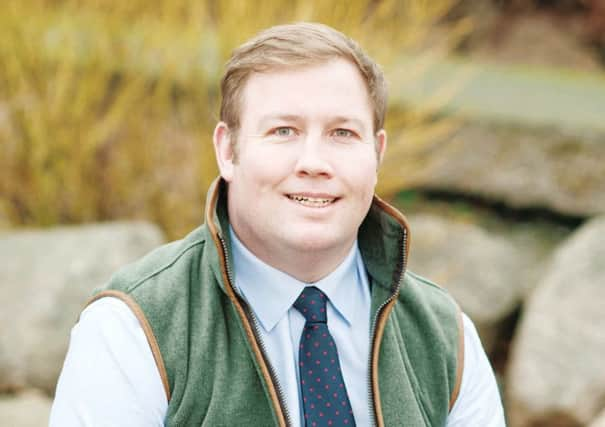Alan Laidlaw: food for thought


Without land management and production, our tourism offering wouldn’t be what it is; we would have a lower visitor economy. In economic terms, rural Scotland is hugely important in terms of food and drink, whether we are exporting it or retaining it for sale on Scottish shelves.
The links that once tied city dwellers to the countryside – holidays spent picking berries in the fields of Fife and Angus, or tattie picking in October – have become distant memories, held only by the older generations, and it is important that we continue to educate people about where their food comes from.
Advertisement
Hide AdAdvertisement
Hide AdI am a passionate believer that rural Scotland is hugely important to all of us. Having made my career as an agriculturalist, it’s fair to say I am biased, but I am proud to be biased as we have such a great story to tell.
There are people who understand implicitly how their breakfast, lunch and dinner is reared, cultivated and harvested, and there are people who don’t. Scotland’s Larder Live at the Royal Highland Show is a fantastic opportunity to engage with the primary producers and learn about the journey from farm to fork.
The Scottish salmon sector is one that is quite often misunderstood. We need to shout louder about its Label Rouge status and the fact that produce from Scotland’s amazing, high-quality sea waters is recognised around the world.
Scottish beef is another success story and this year we are welcoming the World Aberdeen Angus Forum to the Royal Highland Show to celebrate the native breed.
The Royal Highland Education Trust engages with more than 30,000 school children each year to help them understand what goes on in the countryside. Milk doesn’t come from Tesco, it comes from cows; cows which have been fed on Scottish grass and spend most of their days grazing outside.
There are huge opportunities in agritourism and indeed some fantastic examples from glamping in a yurt to family holidays in a farm cottage, or holding corporate team-building days on a sporting estate.
Scotland has built a reputation as a welcoming destination and we certainly go the extra mile to ensure it’s as easy as possible for people to engage with the outdoors, to hear the stories behind the produce and, of course, to buy it.
In rural businesses one of the key opportunities is making sure that more people understand the great assets that we have.
Advertisement
Hide AdAdvertisement
Hide AdIncreasingly, engagement with technology, and particularly social media, is enabling rural businesses and traditional industries to grow their customer base, and there are those who do it very well. For those who haven’t yet seized the opportunity presented by a digital presence, it’s often down to poor connectivity which remains a challenge in some of Scotland’s more remote corners.
There is a perception that farming is a relatively low-tech industry but it is incredible when you stop and look at the equipment that is being introduced to improve productivity. I recently read an article in which the author argued if you want to see what the technology in your car will look like in the future, take a look inside a tractor now – and for the most part, that is absolutely the case.
People can challenge their perceptions of Scotland’s rural sector by visiting the Royal Highland Show. It is hugely important that people feel they can come and engage and ask questions because at the end of the day, there is so much more that goes on outside towns and cities than meets the eye.
Alan Laidlaw is chief executive of the Royal Highland and Agricultural Society of Scotland.